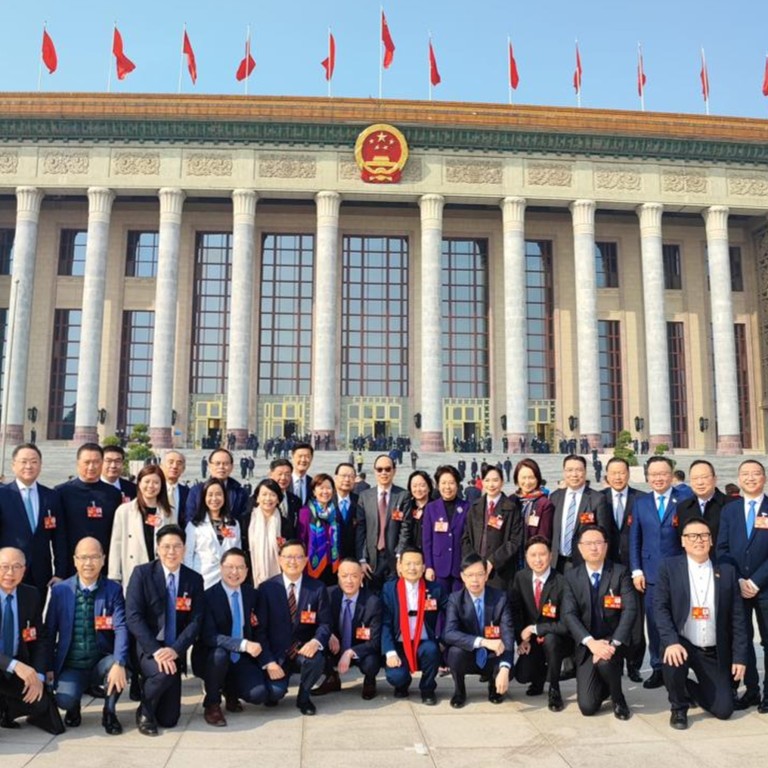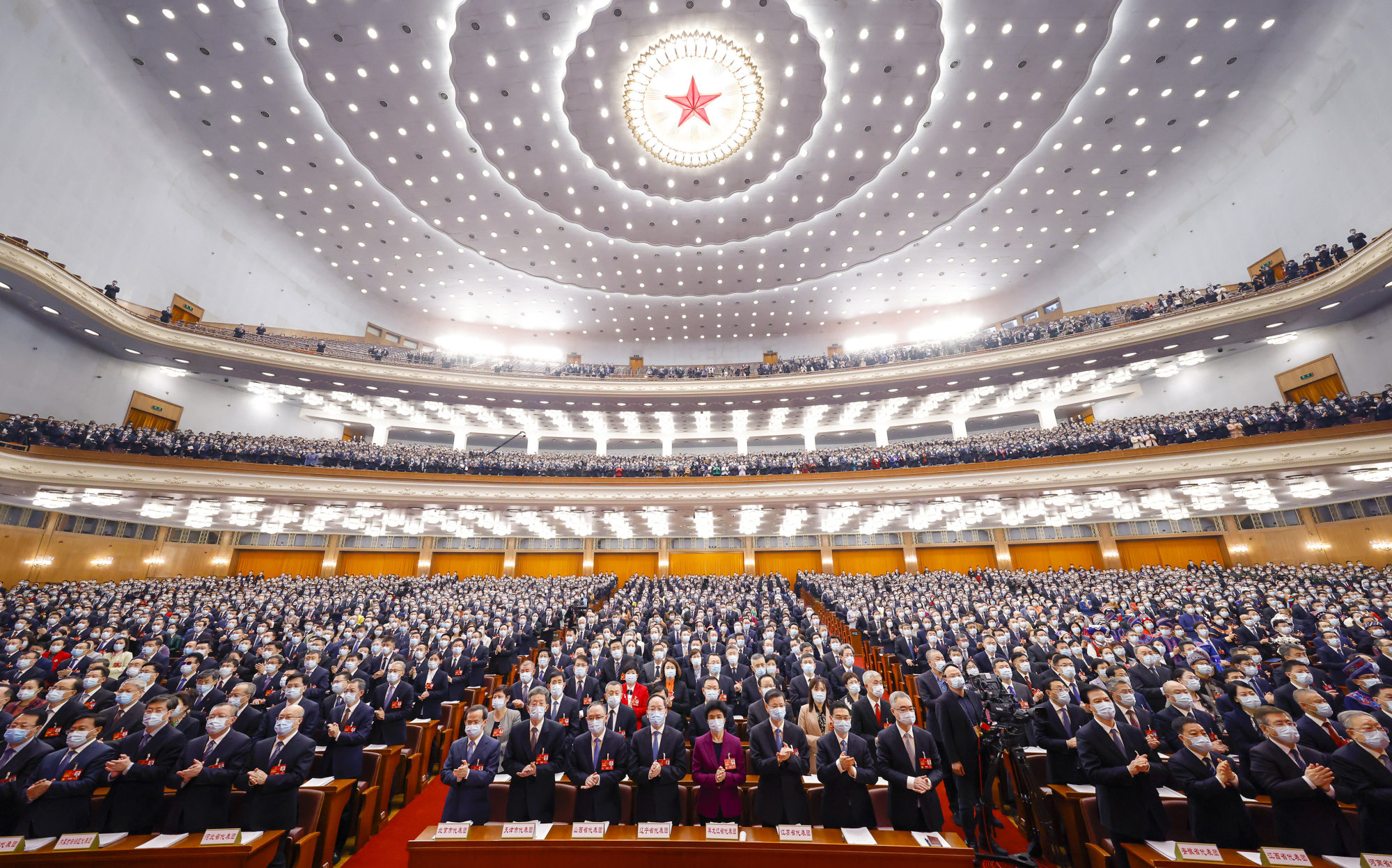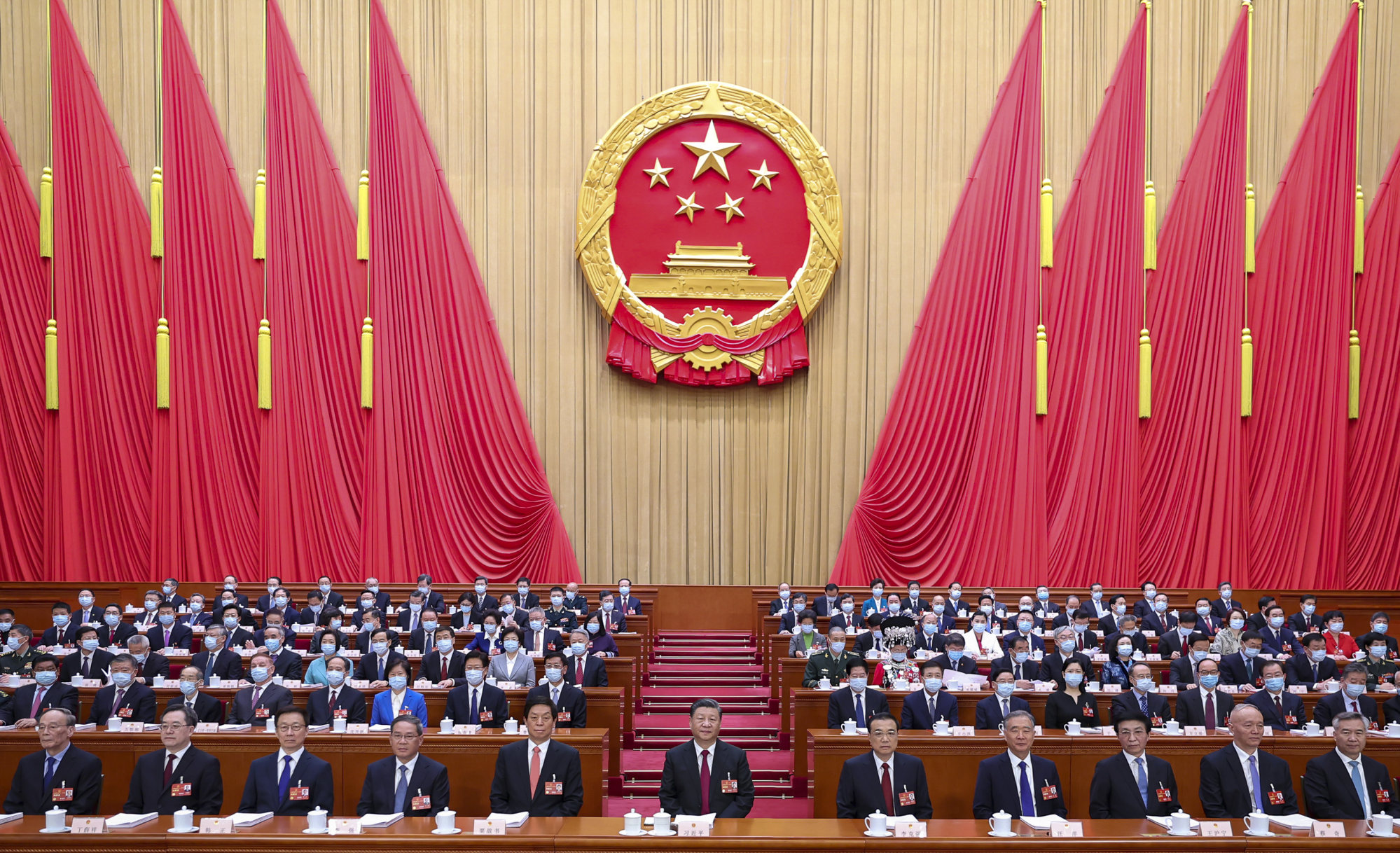
China’s ‘two sessions’ 2023: why did Beijing’s top man in Hong Kong laud the city’s strengths?
- Zheng Yanxiong, director of central government’s liaison office, tells Hong Kong politicians city’s affairs are ‘of national importance’
- Observers point to attracting talent and global use of yuan as vital to nation’s development, but one casts doubt on whether city can maintain international status
Beijing’s representative in Hong Kong made an impression with the political class when he delivered his debut speech as head of the liaison office at the annual sessions of the country’s top legislature and political advisory body over the weekend.
In his remarks delivered at a closed-door meeting attended by key mainland Chinese officials and Hong Kong politicians, Zheng Yanxiong, the director of the central government’s liaison office, proffered the usual warnings about national sovereignty. In a similar vein as other speakers on the subject, he urged the city to stay vigilant even as it had moved from “chaos to governance” and was now poised to pursue prosperity.
But what was unusual, said observers, was how his speech was made public on the same day as the opening compared with the past when such sessions by the liaison office would only be revealed after the two meetings, known as lianghui, were over. They would only be made known via dialogues or “study sessions” held in the city to update everyone on the parliamentary sessions.

And while his predecessors were focused on tasks the city had to accomplish, whether it was to ensure law and order or to help uphold a “patriots ruling Hong Kong” system, Zheng dispensed with a to-do list for his audience. Instead, he devoted the bulk of his speech to listing out and lauding the city’s unique advantages, from its international status and common law system to its open market economy.
Observers said the message was twofold: to galvanise the Hong Kong delegates and motivate them and to also signal to detractors, especially those from the West, that the city intended to remain an international hub.
According to the liaison office, Zheng said at the meeting Hong Kong’s affairs were “of national importance” and the “one country, two systems” governing principle provided momentum for the country’s modernisation.
Hong Kong delegates urged to take more active role in developing Greater Bay Area
“We must firmly support Hong Kong in maintaining its common law system to foster greater links with jurisdictions and market systems in developed countries,” Zheng told the Hong Kong delegates of the National People’s Congress (NPC), the country’s top legislature, on Sunday.
He said Hong Kong’s global connectivity created the conditions for the internationalisation of the yuan, while highlighting that the city’s strengths in cultural inclusiveness were “most conducive to attracting global talent, investors and consumers”.
“We must firmly support Hong Kong’s path of internationalisation,” Zheng said.

The closed-door meeting came on the first day of the NPC’s annual session and was also attended by representatives of the State Council, the National Development and Reform Commission, the Ministry of Finance and the State Council’s Hong Kong and Macau Affairs Office.
In January, Zheng replaced Luo Huining, who took up the role in 2020 following months of anti-government protests.
Lau Siu-kai, a consultant at the semi-official Chinese Association of Hong Kong think tank, said Zheng’s speech was aimed at reassuring residents the city would not become just like any other on the mainland or lose its unique status while further integrating with the national development plan.
He added Western countries had repeatedly “smeared” the local business environment by claiming the city had lost its autonomy.
“Beijing wants to make it clear that it hopes Hong Kong will continue to play its role as an international financial hub, in which it adopts a set of rules that is acceptable to the international world,” he said.
In a nutshell, Zheng was “talking up” Hong Kong, and echoing the message that the city was reopening to the world and that it would remain steadfastly a part of it in wanting to welcome new investors and talent.
Lau added it also showed Zheng was signalling Hong Kong had a pivotal role to play as a bridge for the mainland, including the Greater Bay Area, to “go global”.
The bay area is Beijing’s plan to link nine Guangdong provincial cities with Hong Kong and Macau, turning the area into an economic powerhouse and innovation and technology hub.
‘A bold person’: why Beijing made Zheng Yanxiong its new top gun in Hong Kong
“The city’s link with the mainland makes it a preferred channel to encourage funds, enterprises and talent from overseas to enter China via Hong Kong,” Lau said. “Hong Kong should leverage its advantages to coordinate with the country’s international economic and trade strategy.”
At the opening of the NPC’s session, outgoing Premier Li Keqiang set China’s growth target at 5 per cent this year, while vowing to prioritise economic stability and create synergy for “high-quality development” after the country abandoned its zero-Covid policy.
Since fully reopening to the world, Hong Kong has been hosting multiple events to attract tourists and global business, with the government separately announcing on Wednesday a “wealth for good” summit, an event for family offices and asset owners on March 24.
The flurry of such activities was meant to show the city was bouncing back, observers said.
Professor Sonny Lo Shiu-hing, a political commentator, said Beijing’s emphasis on Hong Kong’s global connectivity underscored the city’s core role in accelerating the internationalisation of the yuan, in a nod to its vital participation in this process to date.
National security chief in Hong Kong takes reins at liaison office
“Also, reassuring the persistence of [Hong Kong’s] common law system is important in attracting foreign investment, like that from the Middle East and other countries,” he said.
But Hui Ching, from the Hong Kong Zhi Ming Institute think tank, questioned whether the city could successfully fulfil such a role amid ongoing geopolitical tensions between the West and China.
“Beijing has stressed it has overall jurisdiction over Hong Kong. That means, Hong Kong should toe Beijing’s line,” he said.

“As such, Hong Kong will become more like a relatively more open city of the mainland, rather than an international city with close ties with the West, as it used to be known … It takes time for Hong Kong to make changes to adapt to this new role.”
Nick Chan Hiu-fung, a lawyer and a local NPC deputy, said Zheng’s assurances should encourage residents to acquire new skills to fully take part in national development plans.
“One should have full confidence that Hong Kong’s common law legal system is here to stay, and to grow from strength to strength,” said Chan, who is also the director of the regional arbitration centre of the Asian-African Legal Consultative Organisation in Hong Kong.
Zheng’s remarks echoed those of President Xi Jinping when he visited the city last July during the 25th anniversary of the return to Chinese rule. Xi had pledged Beijing’s support for the city, promising that it would maintain its distinctive status and edge, while enhancing its standing as an international financial, shipping and trading centre.
Senior Beijing official says Hong Kong schools should emphasise national identity
The president also vowed to retain the city’s open business environment and its common law system, to enable Hong Kong to stay connected with the world.
Zheng’s speech in Beijing on Sunday also reminded observers of how unusual it was for someone in his position to speak glowingly of the city and in the nation’s capital, especially after the turmoil in the city in 2019.
But perhaps the hint of his stance lay in his own words when he was appointed to the job in January. The Cantonese speaker who cut his political teeth in Guangdong told the media in his first meeting that he would work hard to be a man who understood and loved Hong Kong.
“In Hong Kong, I will speak more of Beijing’s words. In Beijing, I will speak more of Hong Kong’s words,” he said at the time.
Additional reporting by Jeffie Lam and Ng Kang-chung

